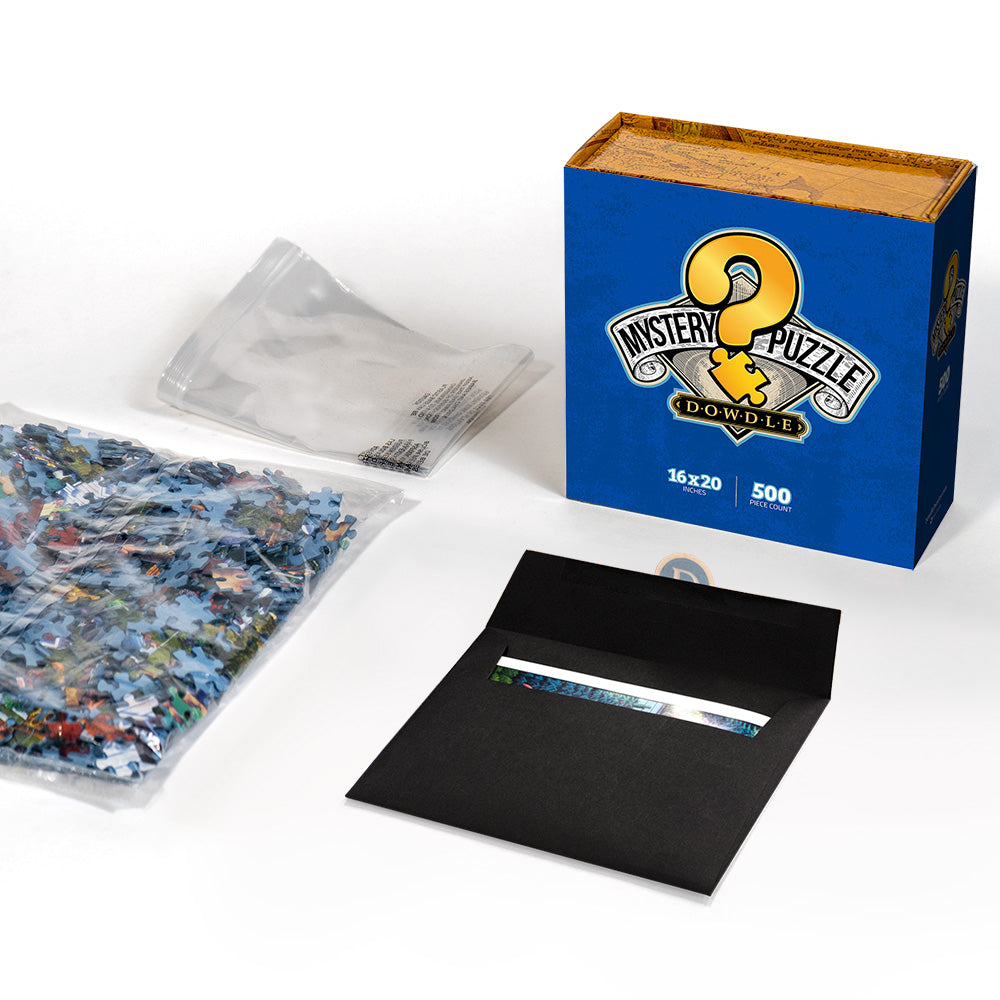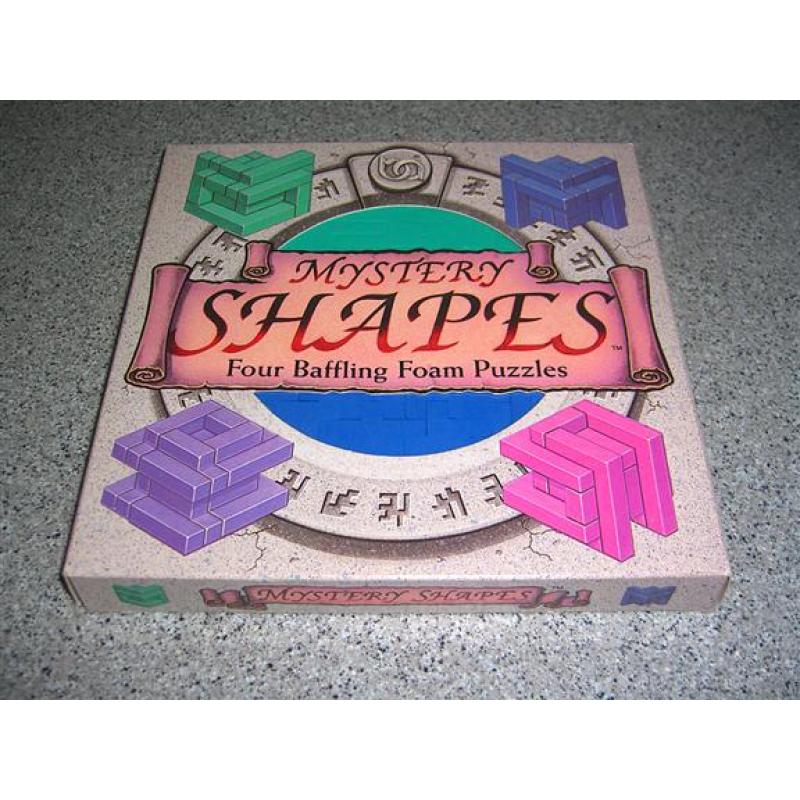Introduction to Mystery Puzzles
Mystery puzzles are brain games that challenge your logic, attention to detail, and problem-solving skills. They come in various forms, from escape rooms to crossword puzzles with a hidden narrative. To solve these enigmas, puzzlers must piece together clues, recognize patterns, and often, think outside the box. The appeal of mystery puzzles lies in the thrill of the ‘aha’ moment when all pieces fall into place, revealing the solution.

Mystery puzzles are not just for personal enjoyment; they are also used in education and team-building exercises. They foster critical thinking and collaborative skills, as often these puzzles require more than one set of eyes to uncover all the clues. Whether you are a novice or a seasoned puzzle enthusiast, understanding the basics of mystery puzzles is the first step to becoming a mastermind solver.
Essential Gear and Tools for Puzzle Solving
To excel at solving mystery puzzles, you need the right gear and tools. They not only aid your mental prowess but can also increase the efficiency and enjoyment of the solving process. Here’s a list of essentials every puzzle solver should consider:
- Notebook and Pen: Keep a notebook on hand for jotting down thoughts, possible solutions, and clues.
- Timer or Stopwatch: Track your solving speed or set limits to challenge yourself further.
- Magnifying Glass: Some puzzles have small, intricate details that are easier to see with a magnifying glass.
- Eraseable Markers: These come in handy for puzzles that require you to mark clues without leaving permanent damage.
- Reference Materials: Keep a dictionary, thesaurus, or encyclopedias nearby for quick information access.
- Puzzle-Specific Tools: Depending on the puzzle type, items like cipher wheels or puzzle mats might be necessary.
Equipping yourself with the right tools is a step toward enhancing your mystery puzzles solving adventure. These tools help keep your thoughts organized and provide practical support during the solving process. Remember, the best gear is what works for you and helps you achieve that satisfying solution.
Developing a Puzzle Solver’s Mindset
To become an adept mystery puzzle solver, developing the right mindset is crucial. Here are key aspects of the mindset needed for tackling mystery puzzles effectively:
- Curiosity: Embrace your natural curiosity. Ask questions about every clue and explore different possibilities without hesitation.
- Patience: Stay patient, as some puzzles can take more time to solve than you might expect.
- Attention to Detail: Notice every little detail. Sometimes, the smallest element can be the key to solving the puzzle.
- Logical Thinking: Apply logic rigorously. Each step should build upon the last, leading you closer to the solution.
- Open-mindedness: Be open to all avenues of thinking. Sometimes the most bizarre idea could be the right one.
These qualities don’t just help solve mystery puzzles; they also enhance daily life problem-solving skills. Cultivate these traits and apply them both to puzzles and real-world challenges for a sharper, more effective mind.

Common Types of Mystery Puzzles
Mystery puzzles come in various shapes and forms. Understanding each type helps choose the right challenge for your skill level. Here are some common types of mystery puzzles:
- Crossword Puzzles: A classic grid with clues to fill in words vertically or horizontally.
- Jigsaw Puzzles: Pieces fit together to form a complete image. Often, the image is a clue.
- Logic Puzzles: These require deductive reasoning to solve complex problems using given hints.
- Cipher Puzzles: Codes and ciphers hide messages that solvers must crack.
- Escape Rooms: These are physical or virtual spaces where you find clues to ‘escape’ a room.
- Riddle Puzzles: Puzzles that pose a question or statement to be solved with clever thinking.
- Sequence Puzzles: Tasks solvers with finding order within a set of items or numbers.
Each type of mystery puzzle engages different skills and offers unique challenges. Crossword puzzles improve vocabulary and memory. Jigsaw puzzles enhance visual-spatial reasoning. Logic puzzles sharpen analytical skills. Cipher puzzles test your code-cracking abilities. Escape rooms build teamwork and problem-solving under pressure. Riddle puzzles exercise the mind’s ability to interpret and reason. Sequence puzzles develop pattern recognition skills.
To master mystery puzzles, start with simpler types before progressing to more complex varieties. As your experience grows, so will your ability to tackle a broader range of puzzles with confidence.
Step-by-Step Puzzle Solving Techniques
When confronting mystery puzzles, having a systematic approach can make all the difference. Here are a series of steps to enhance your problem-solving abilities and guide you toward the coveted solution:
- Read the Instructions Carefully: Understand the rules and objectives before you dive in. Mistakes can be avoided by knowing what’s expected.
- Inspect the Puzzle Thoroughly: Look over all the elements. Observe for any oddities or patterns that stand out.
- Start with the Easiest Clues: Gain momentum by solving the simplest parts first. This can lead to insights for the tougher sections.
- Note Down Your Insights: Keep track of your ideas. Use your notebook to jot down anything that strikes you as relevant.
- Try Different Perspectives: If you’re stuck, shift your viewpoint. What seems like a dead end from one angle may have solutions from another.
- Use Process of Elimination: Rule out the impossible. Narrowing down your options often brings you closer to the answer.
- Take Breaks When Needed: Don’t exhaust your brain. Step away to refresh and return with a clear head.
- Stay Organized: Keep your workspace and thoughts tidy. Clutter can distract and confuse you.
By following these steps, you can tackle mystery puzzles in a methodical, yet flexible manner. Remember, each puzzle is unique, and while these techniques are a solid foundation, adaptability is key to becoming a master puzzle solver.

Tips for Overcoming Common Challenges
When you delve into the intricate world of mystery puzzles, you’ll inevitably encounter obstacles. Here are tips to help you clear these hurdles and keep your puzzle-solving journey on track:
- Face Each Challenge Head-on: When a puzzle stumps you, confront it. Don’t avoid it; tackle it.
- Break Problems Down: Large, complex puzzles can overwhelm. Simplify them into smaller, manageable pieces.
- Stay Calm: Anxiety clouds judgment. Take deep breaths and focus on the task at hand.
- Seek Fresh Eyes: Sometimes, a new perspective can reveal unseen answers. Don’t hesitate to ask for help.
- Embrace Mistakes: Errors are part of learning. Each one teaches you more about the puzzle.
- Persist: Don’t give up too soon. The breakthrough often comes after revisiting the problem.
- Change Your Approach: If one method fails, try another. There’s always more than one way to solve a puzzle.
By applying these strategies, you’ll boost your resilience and increase your chances of solving even the toughest mystery puzzles. Practice makes perfect, and every challenge you overcome sharpens your skills for the next puzzle you face.
The Role of Teamwork in Solving Complex Puzzles
Teamwork is key in unraveling complex mystery puzzles. It brings multiple perspectives and skills to the table. Each team member can spot different clues and solutions, broadening the group’s collective understanding. Here’s how teamwork can enhance the puzzle-solving experience:
- Diverse Skills: Team members often have varied abilities. Some may be good at word games, while others excel at spatial puzzles.
- Idea Sharing: Discussing puzzle aspects can spark new insights. It’s easier to connect the dots with several minds at work.
- Moral Support: Challenging puzzles can be daunting, and team support can bolster motivation and confidence.
- Efficient Division of Tasks: Teams can break a puzzle into sections and work on different parts simultaneously.
- Error Checking: With multiple people involved, mistakes are easier to catch and correct.
When team members communicate well and share a common goal, their collaborative efforts often result in a quicker and more enjoyable solution-finding process. While one member might be observing patterns, another could be researching or interpreting codes, using the diverse strengths of each member to advance towards the solution. Teamwork in mystery puzzles is not just about the skills brought together; it’s also about the shared satisfaction of conquering a demanding challenge as a collective. Remember, the best teams respect each member’s contributions and are open to various ideas to solve their mystery puzzles efficiently and effectively.
Incorporating Technology and Apps for Enhanced Problem-Solving
With the advancement of technology, mystery puzzle enthusiasts now have an array of digital tools at their fingertips. Utilizing technology and apps can significantly boost your problem-solving skills. Here are ways on how technology can be leveraged to conquer mystery puzzles:
- Puzzle-solving Apps: Many mobile apps are designed specifically for solving different types of mystery puzzles. Apps can provide hints or the ability to check solutions, which can be very helpful.
- Online Research: The internet is a vast resource for information. When you’re stuck on a clue, a quick online search can offer new insights or confirm your suspicions.
- Social Puzzle Platforms: Joining online communities and forums can be a valuable way to collaborate with other puzzle solvers. They offer a space to discuss strategies and seek assistance.
- Digital Note-taking: Swap your notebook and pen for a tablet or computer. Digital note-taking allows for easy editing and organizing of your ideas and clues.
- Virtual Escape Rooms: Escape room enthusiasts can enjoy the experience from home with virtual escape rooms, which require the same teamwork and problem-solving skills as physical ones.
Embrace these technological aids to improve your mystery puzzle-solving abilities. Whether you’re decoding a cipher or finding your way out of a virtual escape room, technology can play a pivotal role in your quest for solutions.
